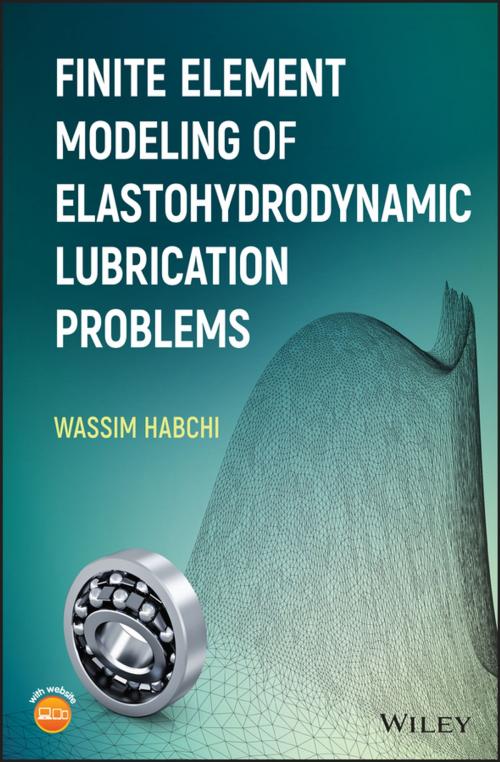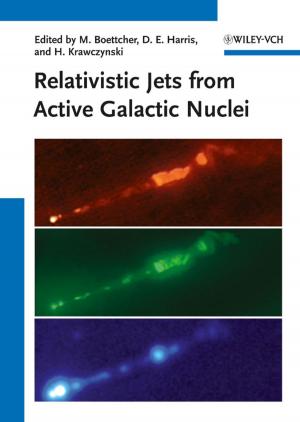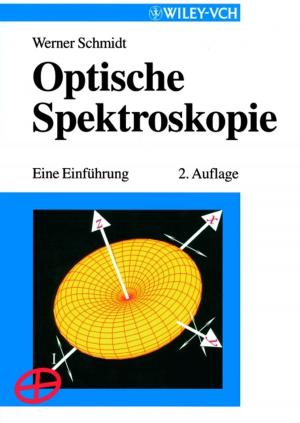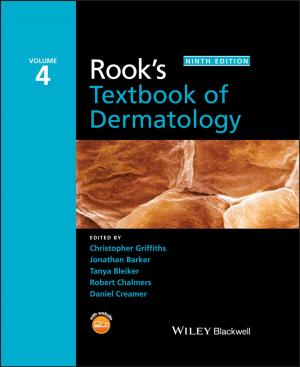Finite Element Modeling of Elastohydrodynamic Lubrication Problems
Nonfiction, Science & Nature, Technology, Engineering, Mechanical| Author: | Wassim Habchi | ISBN: | 9781119225140 |
| Publisher: | Wiley | Publication: | March 21, 2018 |
| Imprint: | Wiley | Language: | English |
| Author: | Wassim Habchi |
| ISBN: | 9781119225140 |
| Publisher: | Wiley |
| Publication: | March 21, 2018 |
| Imprint: | Wiley |
| Language: | English |
Covers the latest developments in modeling elastohydrodynamic lubrication (EHL) problems using the finite element method (FEM)
This comprehensive guide introduces readers to a powerful technology being used today in the modeling of elastohydrodynamic lubrication (EHL) problems. It provides a general framework based on the finite element method (FEM) for dealing with multi-physical problems of complex nature (such as the EHL problem) and is accompanied by a website hosting a user-friendly FEM software for the treatment of EHL problems, based on the methodology described in the book. Finite Element Modeling of Elastohydrodynamic Lubrication Problems begins with an introduction to both the EHL and FEM fields. It then covers Standard FEM modeling of EHL problems, before going over more advanced techniques that employ model order reduction to allow significant savings in computational overhead. Finally, the book looks at applications that show how the developed modeling framework could be used to accurately predict the performance of EHL contacts in terms of lubricant film thickness, pressure build-up and friction coefficients under different configurations.
Finite Element Modeling of Elastohydrodynamic Lubrication Problems offers in-depth chapter coverage of Elastohydrodynamic Lubrication and its FEM Modeling, under Isothermal Newtonian and Generalized-Newtonian conditions with the inclusion of Thermal Effects; Standard FEM Modeling; Advanced FEM Modeling, including Model Order Reduction techniques; and Applications, including Pressure, Film Thickness and Friction Predictions, and Coated EHL.
This book:
- Comprehensively covers the latest technology in modeling EHL problems
- Focuses on the FEM modeling of EHL problems
- Incorporates advanced techniques based on model order reduction
- Covers applications of the method to complex EHL problems
- Accompanied by a website hosting a user-friendly FEM-based EHL software
Finite Element Modeling of Elastohydrodynamic Lubrication Problems is an ideal book for researchers and graduate students in the field of Tribology.
Covers the latest developments in modeling elastohydrodynamic lubrication (EHL) problems using the finite element method (FEM)
This comprehensive guide introduces readers to a powerful technology being used today in the modeling of elastohydrodynamic lubrication (EHL) problems. It provides a general framework based on the finite element method (FEM) for dealing with multi-physical problems of complex nature (such as the EHL problem) and is accompanied by a website hosting a user-friendly FEM software for the treatment of EHL problems, based on the methodology described in the book. Finite Element Modeling of Elastohydrodynamic Lubrication Problems begins with an introduction to both the EHL and FEM fields. It then covers Standard FEM modeling of EHL problems, before going over more advanced techniques that employ model order reduction to allow significant savings in computational overhead. Finally, the book looks at applications that show how the developed modeling framework could be used to accurately predict the performance of EHL contacts in terms of lubricant film thickness, pressure build-up and friction coefficients under different configurations.
Finite Element Modeling of Elastohydrodynamic Lubrication Problems offers in-depth chapter coverage of Elastohydrodynamic Lubrication and its FEM Modeling, under Isothermal Newtonian and Generalized-Newtonian conditions with the inclusion of Thermal Effects; Standard FEM Modeling; Advanced FEM Modeling, including Model Order Reduction techniques; and Applications, including Pressure, Film Thickness and Friction Predictions, and Coated EHL.
This book:
- Comprehensively covers the latest technology in modeling EHL problems
- Focuses on the FEM modeling of EHL problems
- Incorporates advanced techniques based on model order reduction
- Covers applications of the method to complex EHL problems
- Accompanied by a website hosting a user-friendly FEM-based EHL software
Finite Element Modeling of Elastohydrodynamic Lubrication Problems is an ideal book for researchers and graduate students in the field of Tribology.















